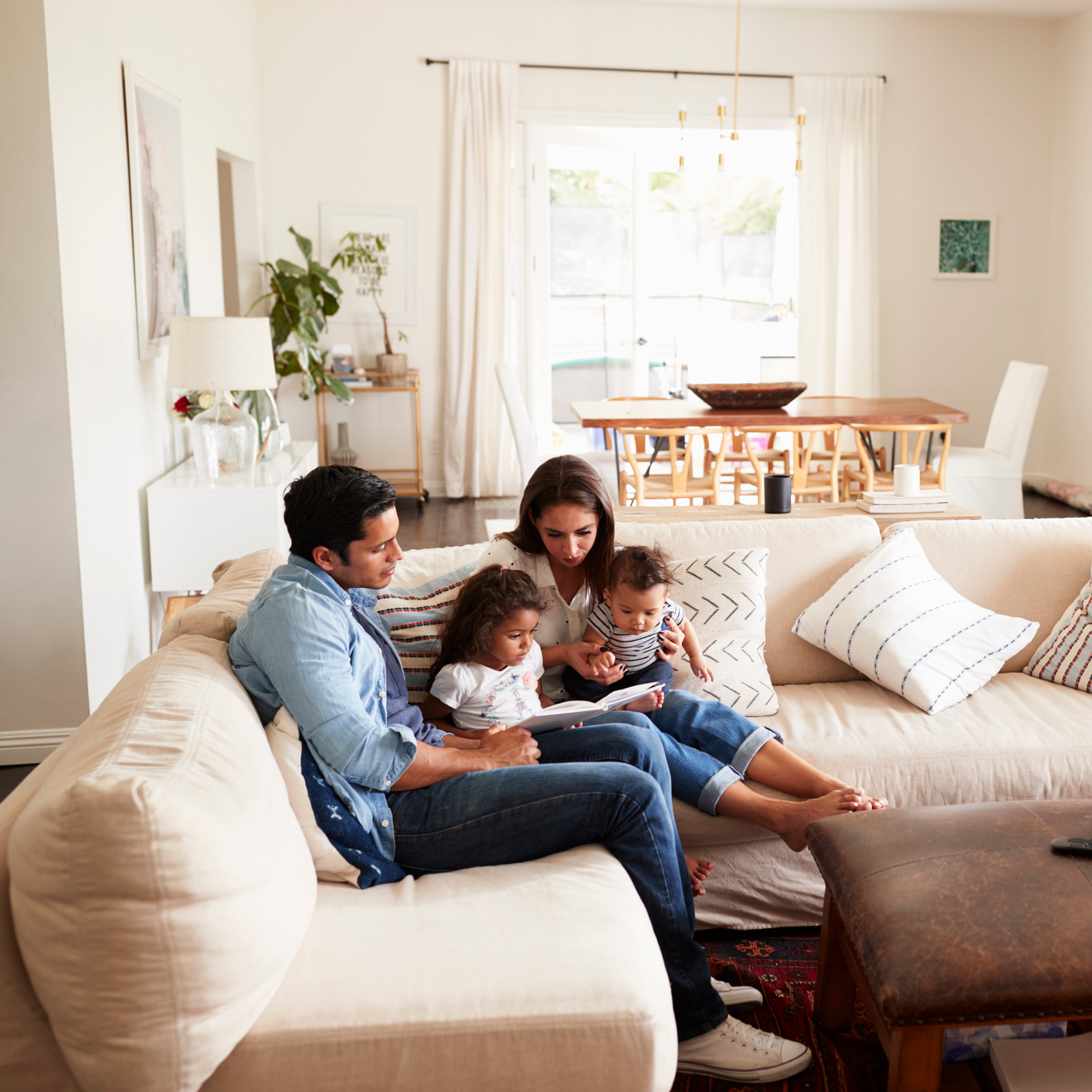
09/30/2024 | Housing and Goods
4 Simple Tips to Keep Your Home Organized as A Family
When my kids were in middle and grade school, we struggled to conquer the chaos and stay organized at home. We did not have much storage space, and…


When my kids were in middle and grade school, we struggled to conquer the chaos and stay organized at home. We did not have much storage space, and the school papers, toys, shoes and stray socks magically multiplied every night.
As my kids got older, we added more stuff from after-school activities and more chaos from a steady stream of friends coming and going. The minute I got the den picked up, I would have a group of kids spending the night with all the pillows and blankets sprung from their hiding places. All that is what you want – kids busy building their community and using their home as a safe place to land and recharge.
We all know that clearing the clutter can help the vital stuff stay front and center. Now, as a veteran mom to two college kids, I want to share some tips to stay organized, not as someone who figured it out but as someone who thinks this guidance could have helped me and my family.
From school flyers to junk mail, random paper can quickly add up. Some people swear by a “do it, delegate it, dump it” routine. While that was never sustainable, I could quickly throw out the trash and stash the more essential items for later when I had time to pay the bills, add stuff to the calendar, etc. Your keys to success – one stash place, look through it every week and then get rid of the no longer relevant paper.
Make available only what fits and is seasonable now. If you have enough clothes to get you through the next one or two laundry cycles, you have enough clothes. Don’t co-mingle what your kids have outgrown and what will fit them after the next growth spurt. Put that stuff away and pull it out when they need it. Your keys to success – throw out the mismatched socks, don’t keep clothes they won’t wear, and don’t keep more than you need.
Think about your family’s “traffic patterns.” If your kids drop their book bags and shoes at the front door, make that the drop area and keep the things they regularly head in and out with (shoes, backpack, gym bag, lunch, jackets) in the same spot, especially for easy access on those hectic mornings. Make it part of your evening routine and get the kids to help ensure their stuff is ready for the morning. Your keys to success – use hooks for jackets and containers like laundry hampers or plastic bins to help you contain the chaos. Make this a household habit.
Play is critical for healthy development, and toys can help spark children's imaginations by giving them objects around which to build a fantastical world. However, just like clothes, kids don’t need as much as we think they do, and they grow out of toys just like clothes. A set of blocks, stuffed animals, playdough, cars, a deck of cards, and or plastic figures can be enough for the rainy days when they are in the house. Your keys to success: Keep your toys confined to a single area in your home, keep only age-appropriate ones, and regularly re-home what you don’t need.
Every child has their favorite book or two (or six or ten if you are my daughter.) These are the ones they have memorized and want to hear repeatedly. Keep a manageable stack of those, and use your local library to rotate new titles in and out. Keys to success: Regularly visit the library. Renew a book they want to re-read. Take advantage of seasonal topics and librarian recommendations.
Spend a few minutes searching; you will find pages and pages of content about how to organize your family. Frankly, it can be a little overwhelming. My advice is to start small, figure out your biggest pain point, and take manageable steps. At the end of the day, if you can simplify the stuff around you and be consistent in how you manage your kids and home, you will find the chaos a little more manageable.
Remember the sage advice: Give a new habit for at least three weeks to become routine.
Housing and Goods
09/30/2024 | Housing and Goods
When my kids were in middle and grade school, we struggled to conquer the chaos and stay organized at home. We did not have much storage space, and…


07/30/2024 | Finances and Employment, Housing and Goods
It’s almost time to celebrate Tax Free Weekend in South Carolina from Aug. 2 to Aug. 4. The annual 72-hour event allows shoppers to purchase…


01/29/2024 | Housing and Goods
Building your child’s library is just one way to instill a love of books in your family. While purchasing children’s books can add up quickly,…
